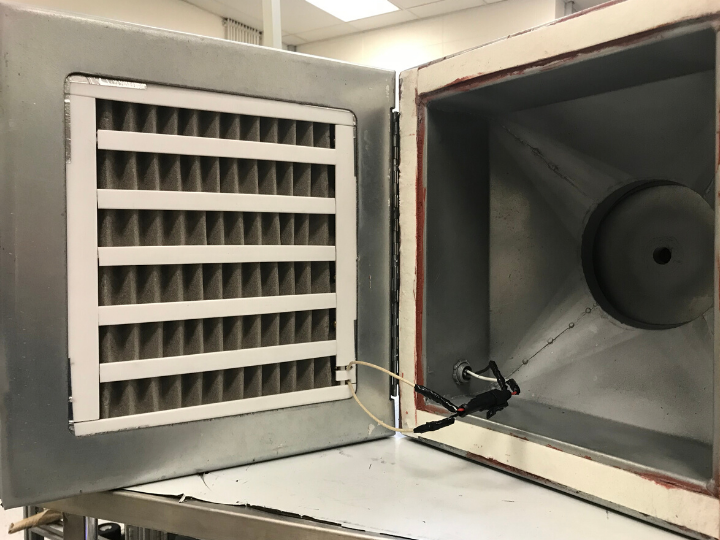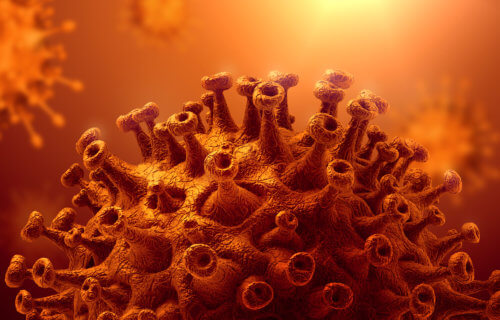HOUSTON — With businesses reopening around the country, controlling the spread of COVID-19 is an urgent priority. Virus containment in air conditioned spaces is particularly important given that it can remain in the air for three hours. Researchers at the University of Houston have now created a solution to this problem: a “catch and kill” air filter that traps the SARS-CoV-2 virus (the virus responsible for COVID-19) and instantly kills it.
The air filter, created in partnership with Medistar, a Houston-based medical real estate development firm, kills 99.8% of SARS-CoV-2 virus particles in just a single pass through the filter. The filter is made from nickel foam that is heated to 200°C (392°F).

Nickel foam is flexible and porous, which allows air to flow through it. It’s also electrically conductive, allowing it to heat. However, nickel foam has low resistivity, meaning that it is difficult to increase its temperature high enough to kill the virus. To resolve this dilemma, scientists folded the foam and connected multiple compartments with electrical wires to increase resistivity and raise the temperature high enough to kill the virus.
“This filter could be useful in airports and in airplanes, in office buildings, schools and cruise ships to stop the spread of COVID-19,” says lead researcher Zhifeng Ren in a statement. “Its ability to help control the spread of the virus could be very useful for society.”
Filter destroys more than just COVID-19
The filter can also be used to kill other harmful air contaminants, including anthrax spores. In laboratory tests, the filter kills 99.9% of anthrax spores. Medistar is hoping to create a desktop version that workers can use to clean the air directly around their desks.
Ren is an Anderson Chair Professor of Physics at the University of Houston.
“This novel biodefense indoor air protection technology offers the first-in-line prevention against environmentally mediated transmission of airborne SARS-CoV-2 and will be on the forefront of technologies available to combat the current pandemic and any future airborne biothreats in indoor environments,” adds co-first-author Faisal Cheema.
Monzer Hourani and Garrett Peel of Medistar are calling for a phased rollout of the filter. The rollout should begin with “high-priority venues, where essential workers are at elevated risk of exposure (particularly schools, hospitals and health care facilities, as well as public transit environs such as airplanes).”
The study is published in the journal Materials Today Physics.
Like studies? Follow us on Facebook!
